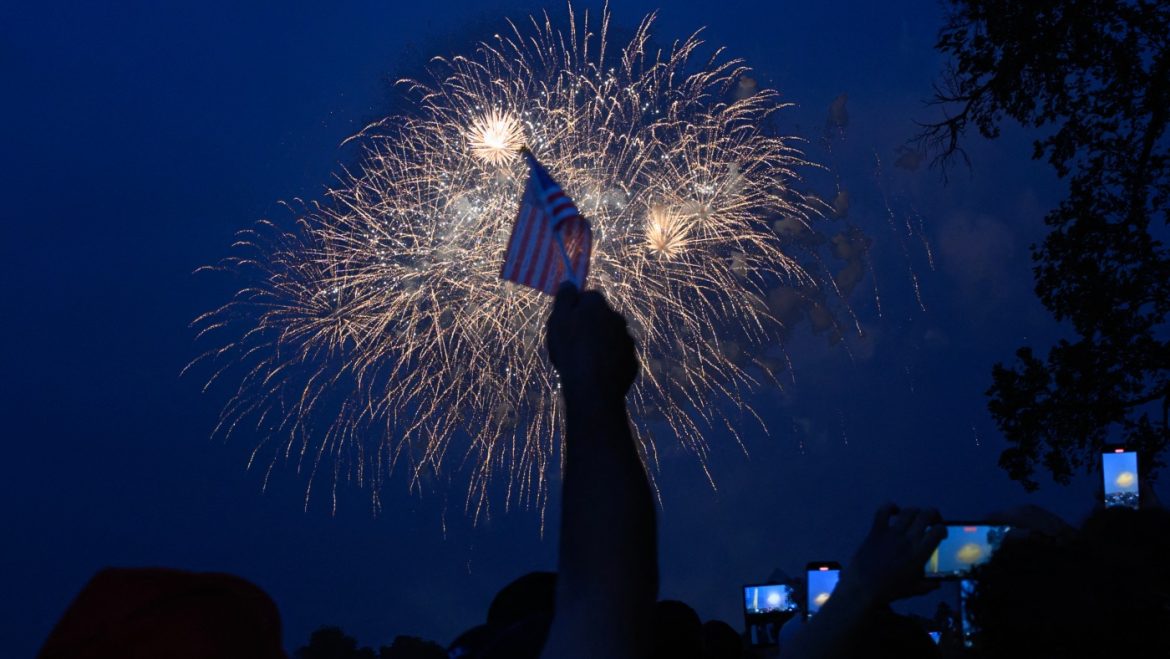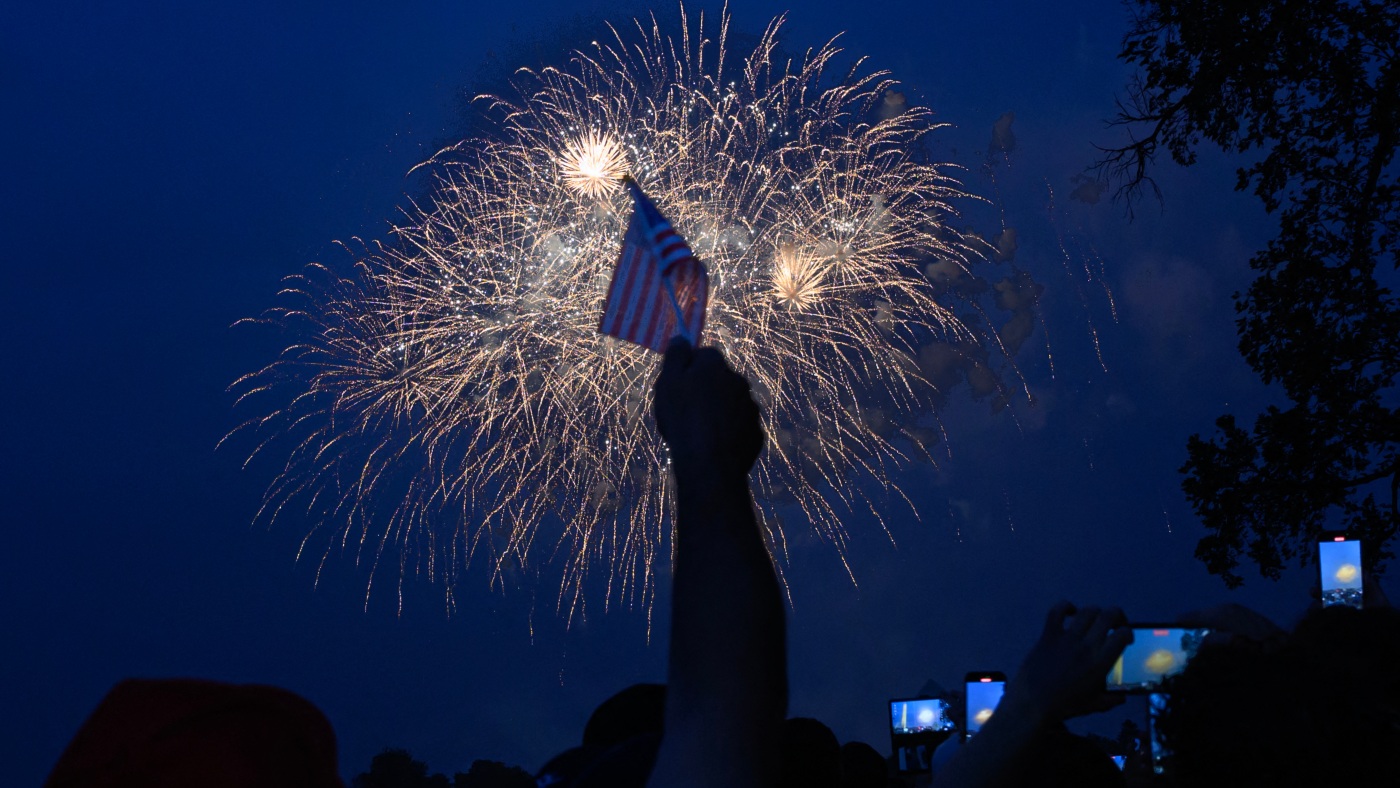The Fourth of July is a day of celebration, marked by fireworks, barbecues, and patriotic displays. Yet, beneath the surface of these festivities lies a deeper, more profound concept: freedom. This year, National Public Radio (NPR) embarked on a thought-provoking inquiry, asking Americans to articulate what freedom means to them in the current landscape. The responses collected by NPR offer a revealing snapshot of the nation’s understanding of its core values, reflecting both the aspirations and the challenges that define the American experience today.
The inquiry revealed that freedom is not a monolithic concept but a deeply personal and contextual one. The responses painted a multifaceted picture, illustrating the diverse ways in which Americans perceive and experience freedom. Several key themes emerged from the collected responses, each offering a unique perspective on this fundamental value.
Physical Safety and Security
For many, freedom begins with the fundamental right to physical safety. In a world increasingly marked by violence, both domestic and international, the ability to live without fear emerged as a central component of freedom. This included freedom from gun violence, freedom from discrimination and hate crimes, and freedom from the threat of war. The anxiety surrounding these issues suggests a growing recognition that freedom is not merely an abstract ideal but is directly tied to the tangible realities of safety and security.
The responses highlighted the importance of feeling secure in one’s community and nation. For instance, many expressed concern about the prevalence of gun violence in the United States, emphasizing that true freedom cannot be achieved when individuals live in constant fear of harm. Others pointed to the need for comprehensive immigration reform, arguing that freedom is undermined when families are separated and individuals are forced to live in the shadows. These perspectives underscore the interconnectedness of safety and freedom, demonstrating that the ability to live without fear is a prerequisite for the pursuit of other freedoms.
Self-Determination and Autonomy
The ability to make choices about one’s own life, free from undue coercion or interference, was another prominent theme. This included the freedom to choose one’s career path, the freedom to express one’s identity, and the freedom to make decisions about one’s own body. This emphasis on self-determination reflects a desire for individual agency and control over one’s destiny, highlighting the importance of personal autonomy in the pursuit of a meaningful life.
The responses revealed a strong belief in the power of individual choice. Many emphasized the importance of educational opportunities, arguing that freedom is enhanced when individuals have access to quality education and the ability to pursue their passions. Others highlighted the significance of reproductive rights, asserting that the freedom to make decisions about one’s own body is a fundamental aspect of personal autonomy. These perspectives demonstrate that freedom is not merely about the absence of constraints but also about the presence of opportunities and choices.
Recognition and Equality
Several responses emphasized the importance of freedom from discrimination and the right to equal treatment under the law. This included the freedom to live without fear of prejudice based on race, religion, gender, sexual orientation, or other personal characteristics. This focus on equality underscores the understanding that freedom is not fully realized until it is extended to all members of society, regardless of their background or identity. It calls for a dismantling of systemic barriers and prejudices that continue to limit opportunities for certain groups.
The responses highlighted the ongoing struggle for equality in America. Many pointed to the persistent disparities in wealth, education, and healthcare, arguing that these inequalities undermine the principle of freedom for all. Others emphasized the need for greater representation and inclusion in political and social institutions, asserting that true freedom requires the active participation of all members of society. These perspectives demonstrate that freedom is not a static concept but an ongoing process of striving for justice and equality.
Civic Engagement and Political Voice
The right to participate in the democratic process, to voice one’s opinions, and to hold elected officials accountable was also a recurring theme. This included the freedom to vote, the freedom to protest, and the freedom of the press. This emphasis on civic engagement reflects a belief that freedom is intrinsically linked to the ability to shape one’s community and country through active participation in the political sphere.
The responses revealed a strong commitment to democratic principles. Many emphasized the importance of voting as a fundamental aspect of freedom, arguing that the ability to choose one’s leaders is a cornerstone of a free society. Others highlighted the significance of peaceful protest, asserting that the freedom to express dissent is essential for holding those in power accountable. These perspectives demonstrate that freedom is not merely about individual rights but also about collective responsibility and engagement.
While many celebrated the ideal of freedom, others expressed a sense of disillusionment, pointing out the gaps between the rhetoric of freedom and the realities of inequality and injustice. This highlights a crucial aspect of the American narrative: the ongoing struggle to reconcile its ideals with its historical and contemporary realities.
Systemic Inequality and Limited Opportunity
For some, freedom remained an elusive dream, limited by systemic inequalities and lack of opportunity. This included the challenges faced by marginalized communities in accessing quality education, healthcare, and economic opportunities. These disparities underscore the fact that freedom is not equally accessible to all, and that historical and ongoing forms of discrimination continue to hinder progress toward a truly equitable society.
The responses highlighted the persistent barriers that prevent many Americans from fully experiencing freedom. Many pointed to the racial wealth gap, arguing that economic inequality undermines the principle of equal opportunity. Others emphasized the need for affordable healthcare, asserting that the ability to access medical care is a fundamental aspect of freedom. These perspectives demonstrate that freedom is not merely about individual rights but also about addressing systemic inequalities.
The Burden of History: Echoes of Slavery and Oppression
The legacy of slavery and racial injustice cast a long shadow over the celebration of Independence Day for many. The words of Frederick Douglass, “What to the Slave Is the Fourth of July?”, continue to resonate today, reminding us that the promise of freedom remains unfulfilled for those who continue to experience the effects of systemic racism. The need to confront this history and work towards genuine reconciliation is a crucial step towards achieving a more inclusive and just society.
The responses revealed a deep awareness of the historical context of freedom in America. Many emphasized the need to acknowledge and address the legacy of slavery and segregation, arguing that true freedom requires confronting the past. Others highlighted the importance of reparations and restorative justice, asserting that freedom is not fully realized until the wounds of history are healed. These perspectives demonstrate that freedom is not merely about individual rights but also about collective healing and reconciliation.
Polarization and Division: Threats to Unity
The current climate of political polarization and social division was also identified as a threat to freedom. The erosion of trust in institutions, the spread of misinformation, and the increasing animosity between different groups were seen as undermining the foundations of a free and democratic society. This highlights the importance of fostering dialogue, promoting critical thinking, and working towards a shared understanding of the common good.
The responses revealed a growing concern about the state of American democracy. Many emphasized the need for greater civic education, arguing that informed and engaged citizens are essential for a free society. Others highlighted the importance of media literacy, asserting that the ability to discern fact from fiction is a fundamental aspect of freedom. These perspectives demonstrate that freedom is not merely about individual rights but also about collective responsibility and engagement.
While many responses focused on individual rights and liberties, some also emphasized the importance of freedom as a collective responsibility. This included the need to protect the environment, to care for the vulnerable, and to promote the well-being of the community as a whole. This perspective recognizes that individual freedom is intertwined with the common good and that a truly free society requires a commitment to social justice and environmental stewardship.
The responses highlighted the interconnectedness of individual and collective freedoms. Many emphasized the importance of environmental protection, arguing that the freedom to live in a healthy and sustainable world is a fundamental aspect of freedom. Others highlighted the significance of social safety nets, asserting that the ability to care for the vulnerable is essential for a free society. These perspectives demonstrate that freedom is not merely about individual rights but also about collective responsibility and engagement.
Interestingly, NPR paired its exploration of freedom with a seemingly incongruous topic: the secret to a perfect summer pasta salad. This juxtaposition, while initially jarring, highlights a fundamental aspect of the human experience: the ability to find joy and connection even amidst complex and challenging circumstances. The simple pleasure of sharing a meal with loved ones, of savoring the flavors of summer, can serve as a reminder of the simple freedoms that are often taken for granted.
The pasta salad analogy serves as a powerful metaphor for the complexities of freedom. Just as a perfect pasta salad requires a balance of flavors and ingredients, so too does a free society require a balance of individual rights and collective responsibilities. The ability to find joy and connection amidst the challenges of life is a testament to the resilience of the human spirit and the enduring power of freedom.
NPR’s inquiry into the meaning of freedom on the Fourth of July reveals a nation grappling with its ideals, its history, and its future. The diverse voices captured in the responses reflect both the enduring appeal of freedom and the ongoing challenges of achieving it for all.
Ultimately, the future of freedom in America depends on our collective commitment to upholding its principles, confronting its contradictions, and expanding its reach. This requires a willingness to engage in difficult conversations, to challenge injustice, and to work towards a more inclusive and equitable society. It demands a renewed commitment to civic engagement, to critical thinking, and to the pursuit of a common good that transcends individual interests. Freedom is not a static concept to be passively received, but an active endeavor to be continuously pursued and defended. As we move forward, let us remember that the pursuit of freedom is not merely a celebration of the past, but a call to action for the future.


